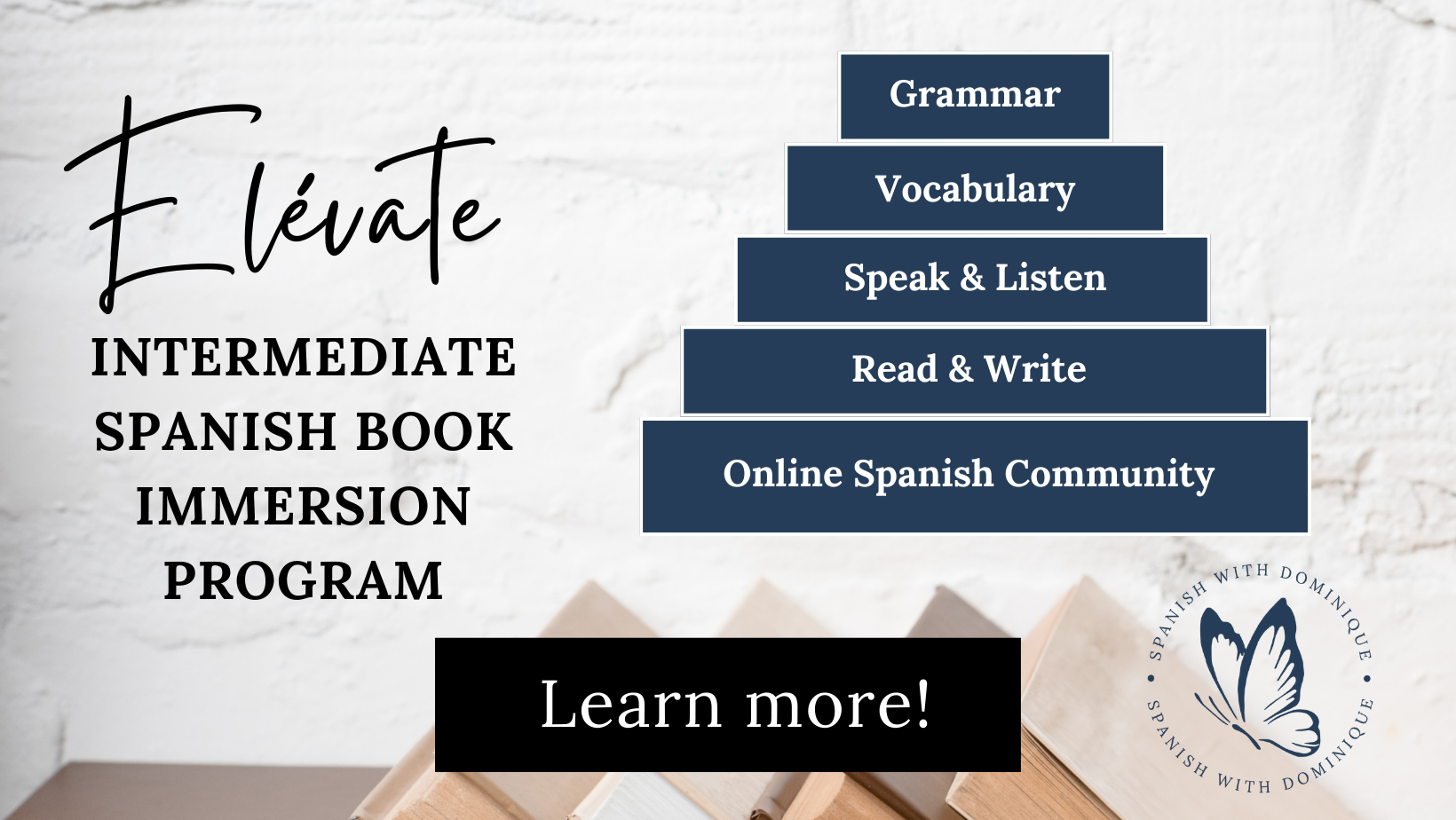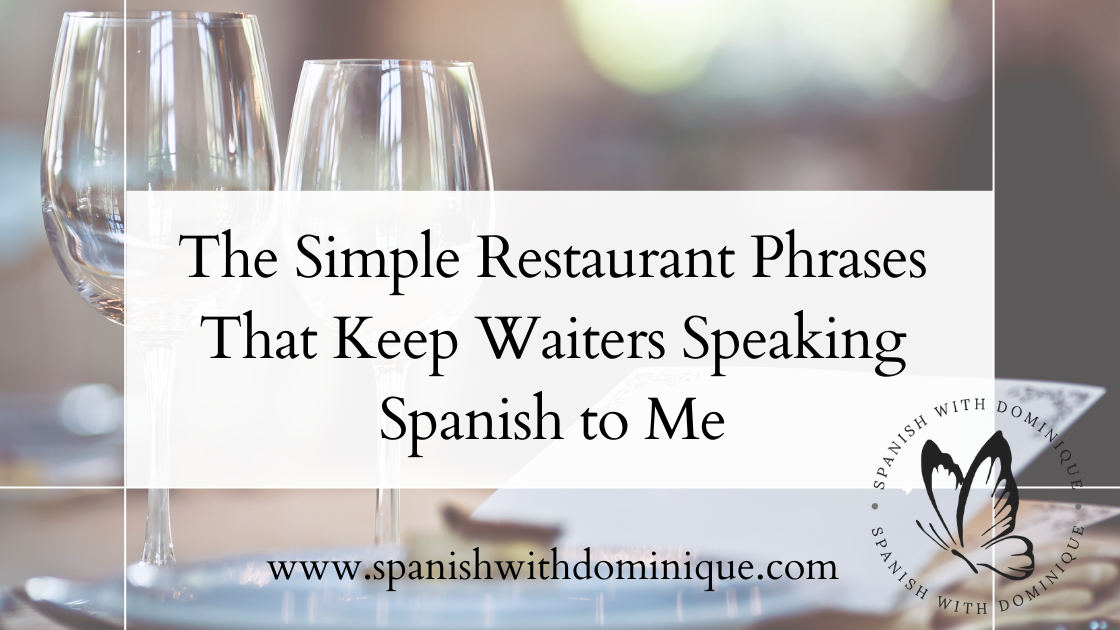Why Jennifer Lopez Doesn’t Speak Spanish (and Why it’s Not Her Fault)
“I am so self-conscious about my Spanish. That’s part of it. That’s why I don’t speak it as much. I like to, and I can, but I get very self-conscious.”— Jennifer Lopez
Live on Telemundo’s Hoy Día in May 2024, Lopez faltered and struggled in Spanish as she attempted to speak about her role in the 1997 film Selena, a performance that earned her a Golden Globe nomination. That interview left a lot of people thinking Jennifer Lopez doesn’t speak Spanish.
And the reaction of some viewers? Let’s call it what it is: Spanish-shaming.
Many 2nd and 3rd-generation Latinos know exactly how Lopez feels. In fact, 54% of U.S. Latinos who don’t speak Spanish have been shamed for it.
The irony? Lopez’s role as Selena—the film that launched her into stardom—is especially poignant because both stars faced the stigma of not learning Spanish as children.
As someone with Puerto Rican roots who learned Spanish later in life, I find inspiration in how Selena Quintanilla learned Spanish as an adult.
And I find inspiration in Lopez as well--imperfect Spanish and all.
Lopez, a Grammy-winning singer, has continued to succeed despite the stigma. But that doesn’t mean the backlash she gets about her language skills is fair.
It’s time to stop stigmatizing those who don’t speak Spanish—whether they’re adults, children, or celebrities.
In this post, you’ll learn why Jennifer Lopez doesn’t speak Spanish fluently--and why it’s not her fault.
We’ll also unpack how mocking or shaming language skills silences many would-be Spanish speakers, stunting their progress.
And if you grew up with a little (or a lot) of Spanish-shaming and want to learn to feel safe in Spanish, so you can start making progress again? I’ll have a few words just for you at the end of this post.
So, why doesn’t Jennifer Lopez speak Spanish fluently?
First, Jennifer Lopez grew up in the Bronx, not a Latin American country.
Her parents, first-generation immigrants from Puerto Rico, settled in the Bronx in a close-knit Puerto Rican family. Lopez is a heritage speaker--or someone who grew up in a home where she heard Spanish.
To be sure, children with Spanish-speaking parents have opportunities to train their ears and pick up vocabulary in a natural way--if they hear Spanish at home.
But children don’t magically start speaking Spanish just because they hear it.
Parents have to make a conscious choice to raise children to be bilingual in Spanish. Creating an environment where children speak both languages takes years of effort. Easier said than done.
Jennifer Lopez’s parents did their best to care for the family--according to their priorities. Her father worked nights, and her mother taught at the children’s school. They still found time to support Lopez’s love of the arts with singing and dance lessons.
When we Spanish-shame families whose children don’t grow up bilingual, we’re questioning their right to select priorities, pick their battles, and choose which dreams to chase.
The Lopez family prioritized private education and artistic experience for their children. That was their call to make.
But even if the Lopez family had decided to focus on raising Jennifer bilingual, it might not have been enough to make her speak Spanish.
Why?
Growing up bilingual can feel an awful lot like being different.
Let’s remember that Jennifer Lopez went to elementary school and high school in the 70s and early 80s. They were different times to be sure - especially when it came to dual-language households.
Today we know that raising children bilingual does not take away from their ability to speak English. But even now, armed with that knowledge, parents have so many questions and doubts.
For first-generation immigrants, the focus may be on fitting in and making a new life. Raising bilingual children means being comfortable speaking with them in Spanish on playdates, at the park, and in public. And that can feel, well, different.
Even for adults prioritizing their children’s bilingual future, the choice to go against the grain can lead to stress and takes constant commitment and strength.
For kids, that kind of pressure can be a deal-breaker.
If a child feels odd, different, or singled out for their Spanish, they can go silent.
That’s why calling out, mocking, or stigmatizing heritage learners creates such serious issues. Yes, for adults, too.
The Stigma of not speaking Spanish becomes a linguistic hurdle
Have you ever had your Spanish judged?
I have. When I first moved to Spain, one of my instructors told me I had the worst Spanish accent in the class.
I wonder if you know what it’s like to be so afraid to speak up that you find yourself shut out of conversations.
Introverted language learners know that kind of anxiety. So does anyone who has ever preferred to “remain silent” in Spanish rather than risk ridicule.
The self-doubt can escalate all the way up to panic. (Believe me, I know).
It kicks off a vicious cycle. You’re worried about your “imperfect” Spanish, so you don’t speak it. Since you don’t practice, your Spanish suffers. You start to dread conversations in Spanish.
Then, a relative or friend steps in with a little Spanish-shaming, and you shut up for good.
And that’s not just an anecdote from my experience learning Spanish as an adult or a teacher who has worked with heritage learners.
Research shows that language anxiety kills your willingness to practice and stunts your language skills.
I learned that from years of speaking Spanish in community situations--including giving speeches at the Rotary Club.
Sure, your language ability matters, but a lack of confidence will steal your words and stop you in your tracks.
Imagine going to family gatherings and knowing that someone will make disappointed remarks about your Spanish. That’s bad enough, right?
Now, imagine having to give an interview on live TV of, say, 1.2 million people like
Jennifer Lopez. Imagine knowing in advance what people will say: “Your Spanish is not good enough.”
Which brings us to an uncomfortable question:
Who decides if Jennifer Lopez’s Spanish is “good enough”?
Lopez uses Spanish in her career and her performances. Speaking fluently is a different skill to develop. She hasn’t gone down that path--and that’s her decision to make.
In Spanish interviews, she hesitates, stumbles, and moves back into English--like too many Spanish learners who have faced a lifetime of Spanish-shaming.
But her level of Spanish does not make her a sellout.
And when people start asking questions like:
“Does Ben Affleck speak better Spanish than Jennifer Lopez?”
I can’t help but wonder if we’re being fair.
I’m all for celebrating Affleck for his “surprising” accent and intermediate level of Spanish.
But let’s be clear: no one expects him to speak Spanish like someone who grew up in a Spanish-speaking country.
We hold heritage speakers like Lopez to a higher standard. And the challenges they face are greater.
Affleck credits his accent to early exposure to Spanish. And if you listen to Lopez speak Spanish (when she’s comfortable), you can catch glimpses that show she grew up with the language.
Yet Affleck’s Spanish keeps improving, while Lopez’s Spanish remains frozen in time. Why?
Look no further than the stigma and shame surrounding heritage Spanish speakers.
Affleck never faced the kind of lifelong Spanish shaming that second and third-generation heritage speakers do.
Jennifer Lopez. Imagine knowing in advance what people will say: “Your Spanish is not good enough.”
Ask yourself why we expect people who grew up all over the States to speak Spanish like they grew up in countries far away.
Then, ask some slightly more personal questions:
What if you’re reading this and thinking that you know exactly what Lopez is going through?
What if you’re also a heritage learner, feeling stuck in time with Spanish, unable to move forward?
What if you really want to speak up in Spanish--but first, you’ve got a lifetime of shame to overcome?
Then read on for some thoughts on that--from me to you.
A few words for heritage speakers learning Spanish:
In the past, I’ve worked with heritage speakers who have their hearts set on learning Spanish. If that’s you, you’re probably asking yourself:
“How can I get better at Spanish?”
But maybe that’s not the first question you need to ask. First, ask yourself:
Do you have a safe space to express yourself, as you are, in your Spanish?
Do you feel safe when you speak Spanish--or even when you think of speaking Spanish?
If not, your first priority isn’t grammar or enrolling in a course.
Create safety for your Spanish and yourself.
If you’re carrying fear of how people will judge you or shame about not speaking like a native speaker, those feelings can silence you, making it hard to move forward.
You may have faced painful experiences like:
Being ridiculed for your ‘imperfect accent’ and feeling fearful of saying basic expressions or even introducing yourself.
Having your cultural identity questioned because of how you speak Spanish.
Hearing that your family’s dialect or accent isn’t as “good” as Spanish from Spain.
Wanting to connect with Spanish-speaking communities but fearing rejection.
These experiences can leave you with deep shame and anxiety about speaking Spanish.
But here’s the truth:
The stigma around not speaking "like a native" didn’t start with you.
In fact, many people know what it means to be called out as “no sabo”.
You know, when you tell people you “don’t know” how to speak Spanish, you show them, too, by getting the verb wrong. Two words: generations of judgment.
People are pushing back, and for good reason. “No sabo” kids are the legacy of a not-so-distant past when Spanish speakers faced ridicule and even punishment.
It’s not your fault, and you’re not alone.
Create a sense of safety for your Spanish and yourself, whether you’re speaking at home, on social media, or in public.
That’s where the real joy of learning Spanish begins. It might take time, but in my experience with heritage speakers, it’s essential.
Once you rediscover that joy, protect it. Be mindful of the learning environments you choose.
Look for Spanish learning opportunities tailored to heritage speakers.
Many in-person and online Spanish classes are designed for learners starting from zero. Think of high school classes that follow a strict, step-by-step path.
If you’re a heritage speaker, those classes aren’t for you.
In a traditional Spanish class, you’re likely to feel bored, discouraged, or even talked down to. Find a Spanish teacher who understands your unique strengths and struggles.
Look for programs, communities, and resources made specifically for heritage speakers who want to feel safe while deepening their connection to Spanish.
I recommend Spanish Sin Pena, a dynamic California-based small business with a podcast, learning community, and immersion programs.
Takeaways
Whether you’re a heritage Spanish learner or an adult with a love for the language, I hope you can appreciate Jennifer Lopez’s strength in facing the stigma around her Spanish.
Let her experience remind you to support your fellow Spanish learners and seek out judgment-free spaces--or create your own.
Find communities where you feel safe speaking Spanish and can be yourself--regardless of your heritage or the language your family spoke when you were growing up. Above all, learn to enjoy your Spanish learning--imperfections and all.
This is the first and most important step toward feeling “good enough” in Spanish—whatever that means to you.







